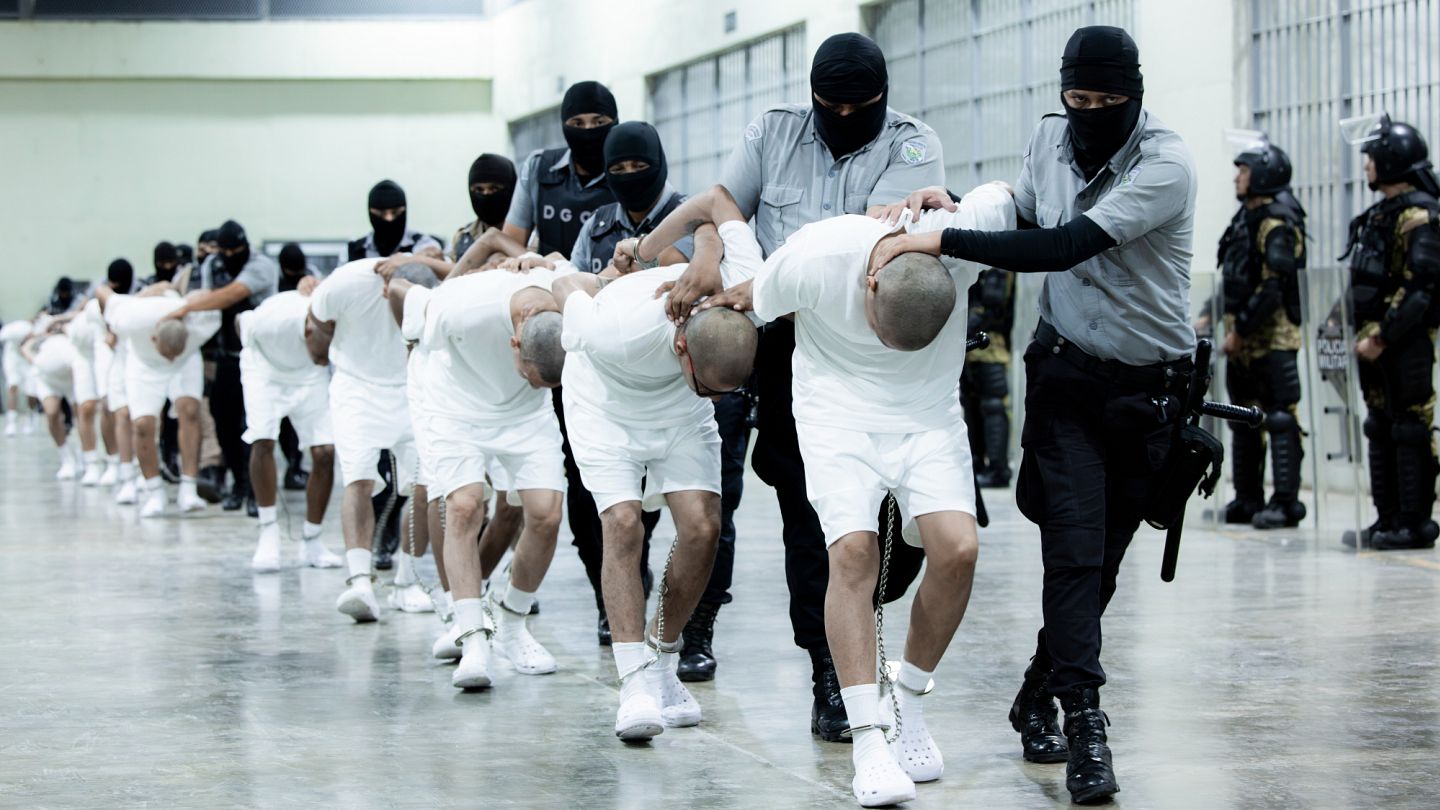The U.S. Supreme Court has removed the barrier to the deportation of Venezuelans to El Salvador.
The Trump administration characterized the decision made by the U.S. Supreme Court on Monday as a victory.
The U.S. Supreme Court ruled that the Trump administration could continue the practice of deporting Venezuelans under an 18th-century law, provided they are tried in court. In the decision announced on Monday evening, the judges overturned a lower court ruling that temporarily blocked the U.S. government from enforcing the controversial policy. In the 5-4 ruling, which did not address legal questions regarding President Donald Trump's use of the Foreign Enemies Act, it was stated that Venezuelan immigrants accused of being gang members should be given a "reasonable time" to appeal their deportations. The majority of judges also argued that it was incorrect for the lawyers representing five Venezuelans to file the lawsuit in Washington rather than Texas, where the immigrants are being held. The Supreme Court's ruling came just weeks after U.S. District Judge James E. Boasberg's order for the planes to return, which resulted in the deportation of 238 Venezuelans from the U.S. to a mega-prison in El Salvador.
In a divisive decision, conservative judge Brett Kavanaugh, who voted in favor of the Supreme Court's final ruling, indicated that he and his eight colleagues agreed that the "transfers of the immigrants should be subject to judicial review." Kavanaugh said, "The only question is where this judicial review should take place." Two of the three liberal judges who voted against the majority decision expressed concerns about this move. Along with liberal judges Ketanji Brown Jackson and Elena Kagan, Judge Sonia Sotomayor, who partially joined Judge Amy Coney Barrett, labeled the legal outcome reached by the court as "suspect." In her dissenting opinion, Sotomayor questioned Trump's use of the 1798 Foreign Enemies Act, which has only been invoked three times by U.S. presidents during the War of 1812, World War I, and World War II. On March 14, Trump stated that there was a need for this law to protect the U.S. from the "invasion" of the Tren De Aragua gang, which has roots in Venezuela. In her dissent, Sotomayor wrote, "Of course, there is no ongoing war between the U.S. and Venezuela. Tren De Aragua itself is not a 'foreign nation'." Referring to last month's deportation actions, the liberal judge said the apparent plan of the Trump administration was "to rush the plaintiffs out of the country before a court can decide whether the President's use of the Foreign Enemies Act is legal or whether these individuals are indeed members of Tren De Aragua." Sotomayor added, "The government's position in this case poses an extraordinary threat to the rule of law. It is indefensible for the majority of this court to now reward the government for this behavior." Judge Jackson stated in her written remarks that it was wrong for the court to handle the matter through an emergency file instead of oral argument and a fully detailed file. Jackson said, "As more and more of our most important decisions occur in the shadow of our emergency file, today’s court is leaving less and less of a mark. But make no mistake: we are getting it wrong now just as we have in the past, and we are producing similarly devastating results. It seems we are now less willing to confront this."
Trump celebrates the decision
While the Trump administration welcomed the Supreme Court's decision, President Trump stated in a post on the social media platform Truth Social that this was "a great day for justice in America." U.S. Secretary of Homeland Security Kristi Noem, who recently visited the Salvadoran prison where 238 Venezuelans were deported, also celebrated the decision, stating it gave Trump "the power to use wartime authority and stop terrorists from invading our country." Meanwhile, the American Civil Liberties Union (ACLU), which filed a lawsuit on behalf of five Venezuelan immigrants last month, welcomed some aspects of the decision. ACLU lawyer Lee Gelernt stated that the emphasis on the legal process for non-citizens was "an important victory." In recent weeks, reports have emerged that many of those deported to El Salvador for allegedly being gang members, including a Venezuelan makeup artist, were innocent. Kilmar Abrego Garcia, a Salvadoran citizen who has lived in the U.S. for over a decade, was also recently sent to the Salvadoran mega-prison. A lawyer working for the Trump administration admitted last week that Garcia's deportation was due to "an administrative error." The U.S. government has since claimed it lacks the ability to bring Abrego Garcia back. Trump and his allies have called for the removal of Judge Boasberg, who issued the ruling halting the deportation of Venezuelans to El Salvador, in their ongoing battle against the judiciary.


